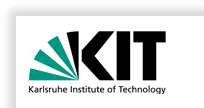The air cargo industry is described as a prime candidate for applying revenue management. However, air cargo revenue management is still underdeveloped compared to the prevailing systems in the air passenger industry. This is predominantly due to several differences that make it difficult to simply adopt passenger revenue management systems to air cargo. The main difference is air cargo's two dimensions, namely weight and volume, whereas passengers simply use one seat per person.
A further difference is air cargo's sale process in a B2B market. Cargo is sold in two stages: The first stage is the allotment phase during which big customers reserve a predefined amount of capacity on particular flights and days. The second stage is the spot market allocation during the last 30 days prior to departure. Carriers try to sell their remaining capacity during this time.
The challenge, cargo revenue management tries to cope with, is that a traditional first-come-first-served policy is usually not optimal. That means, an airline has to decide each time a booking request occurs on the spot market, whether to accept the request or to save space for a higher-revenue request that may arrive in the future.
In this thesis, several existing models are adjusted and combined to develop a new approach that attempts to jointly solve the spot market allocation problem and the allotment management task. This is done by applying both integer and dynamic programming. The allotment management decision model provides a decision rule of how much of the aircraft's total capacity to reserve for spot market sales by taking into account future short term bookings. Furthermore, the model decides which allotment requests to accept to optimize revenue.

